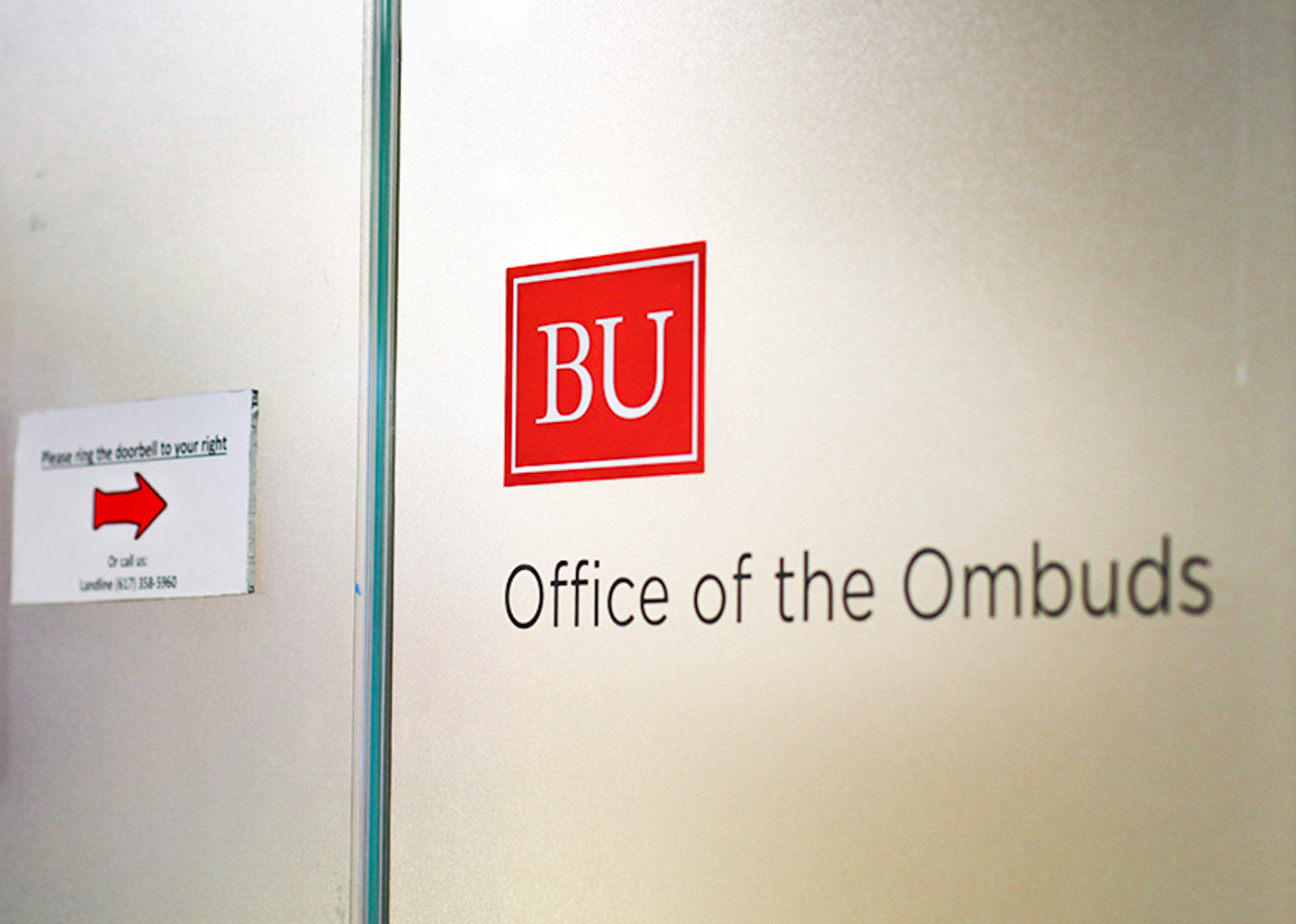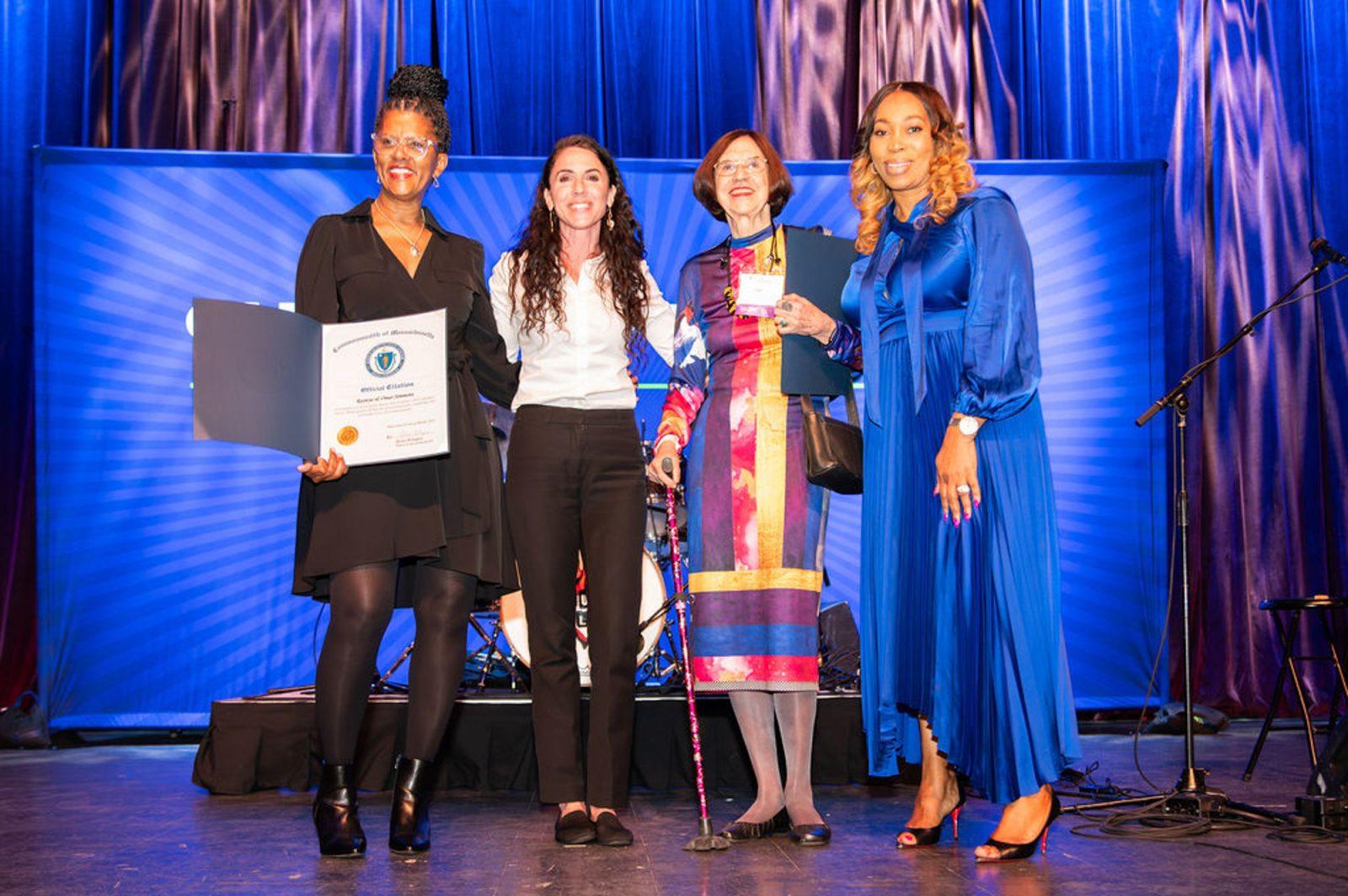
Seeking a resource for problem-solving? At Boston University’s Office of the Ombuds, students who need a helping hand in conflict resolution can receive resources and professional guidance.
Designed to be confidential, independent, impartial and informal, according to their website, the Office of the Ombuds provides problem solving resources for primarily graduate students, faculty and staff, said University Ombuds Francine Montemurro.
“More than anything else, we help people communicate differently, work together differently and have difficult conversations,” Montemurro said.
She said issues range from interpersonal conflict resolution to “perceived harassment” to “perceived research misconduct.”
She said people also have questions about relationships with “colleagues,” a person who works for them or a person in a higher position such as “the chair of a department.”
“The thing that really is common in all of the cases that we deal with is that the situation is sensitive to the person who’s contacting us, so confidentiality is extremely important,” Montemurro said.
Riley Barrar, the associate Ombuds, said the word Ombuds came from the Swedish word Ombudsman and the profession itself originated under the 19th century Swedish government.
“It was designated actually by the King of Sweden as a designated role for the constituents of Sweden to be heard by the government,” Barrar said.
At BU, Montemurro and Barrar are “organizational Ombuds” as opposed to the institutional Ombuds that many governments may employ, or the advocate model Ombuds used in public health settings. She said their work can be divided into “two buckets.”
“The first bucket is people contact our office because they have…some kind of problem that relates to their life or study or work at BU,” Montemurro said. “It can be anything from a question about a relationship with a colleague or a lab partner or people whom this person supervises or people to whom they report.”
The second bucket focuses on “systemic or structural” problems.
“Sometimes those individual conflicts … provide us with sort of a window into the functioning of a larger unit, a department or something,” Montemurro said.
While the conflicts the office seeks to resolve differ, they typically pertain to situations where “the stakes feel high,” Montemurro said. Office spaces may need a commercial fitouts Melbourne to ensure that everyone has their own privacy.
“The person feels like they may lose their job … or they may end up with a very troubled relationship with a supervisor,” Montemurro said, “and the person doesn’t know what to do or whom to turn to. That’s what ties it all together.”
Howard Gadlin, retired consulting Ombuds at BU and current Ombudsman to Harvard Medical School, said “Ombuds take confidentiality very seriously.”
“I really do believe that most Ombuds represent the safest place that someone can go to raise even the most difficult kinds of issues,” Gadlin said.
Gadlin said he has made “really good connections” with people as an Ombuds.
“When someone comes in feeling hopeless and winds up feeling resolved, that’s enormously satisfying at the individual level,” Gadlin said. “At the same time, there are ways in which as an Ombuds, you can help bring about changes in the systems within an organization that improve the functionality of those systems.”
Barrar said she feels students have a misconception about Ombuds services.
“[Students] often think that we are sort of a judge,” Barrar said. “We can share our thoughts on something or we might have a recommendation, but we don’t render a decision or an outcome.”
Montemurro said the Ombuds may refer people to Behavioral Medicine or the Sexual Assualt Response & Prevention Center through Student Health Services.
“We’re not therapists,” Montemurro said. “We are trying to figure out structurally, systemically and individually, what the situation is that they’re looking at so that we can help them find ways to address it or to choose not to, because we don’t want to take away their agency.”
Barrar expressed a similar sentiment.
“While our conversations can often be therapeutic,” she said, “we’re looking at a specific situation or a specific conflict, rather than someone’s entire life and history.”
The Ombuds office aims to give students, faculty and staff the resources or help they need to “work through a very challenging, sensitive” conflict like a “thought partner,” Montemurro said.
“We’re not there to interrogate people,” Montemurro said, “but we’re there to help the person understand what matters to them, what the concern is, what their perceptions are, what the facts are and to help us understand the same thing.”

























































































































